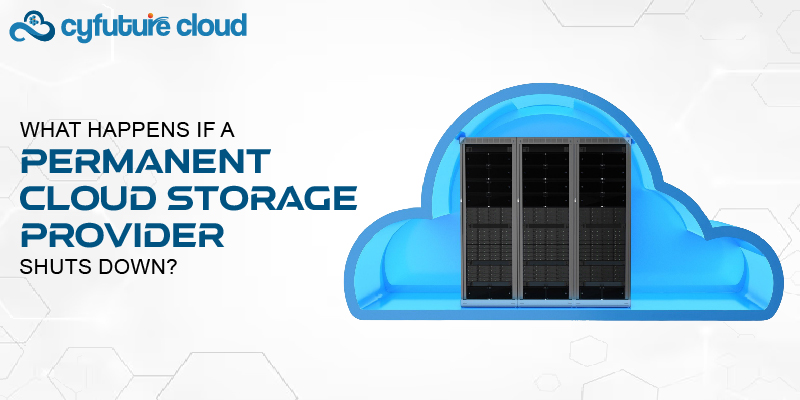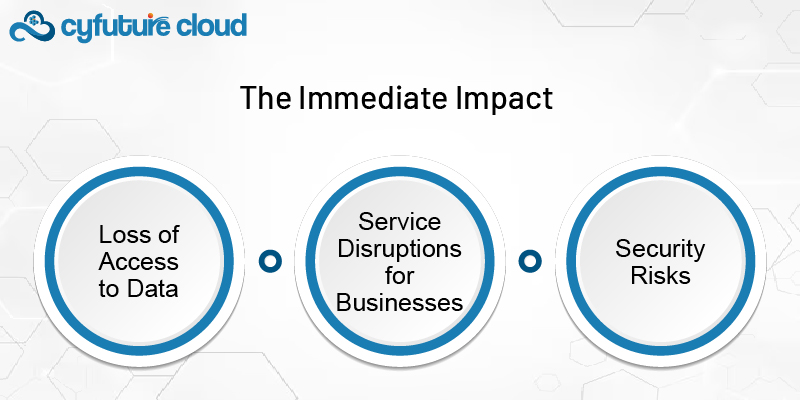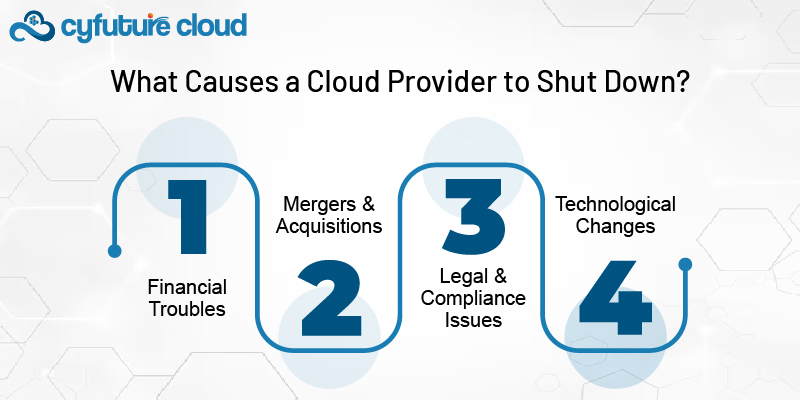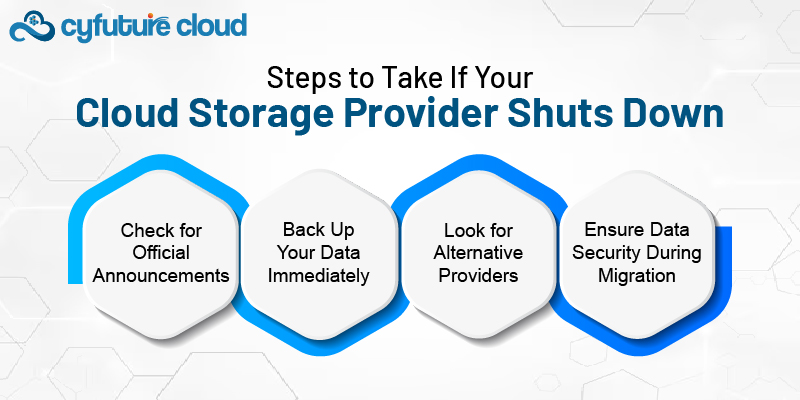 Server
Colocation
Server
Colocation
 CDN
Network
CDN
Network
 Linux Cloud
Hosting
Linux Cloud
Hosting
 VMware Public
Cloud
VMware Public
Cloud
 Multi-Cloud
Hosting
Multi-Cloud
Hosting
 Cloud
Server Hosting
Cloud
Server Hosting
 Kubernetes
Kubernetes
 API Gateway
API Gateway


If a permanent cloud storage provider experiences a cloud service shutdown, users can face serious consequences, including the sudden loss of access to critical data, disrupted workflows, and potential legal or compliance issues if backups were not maintained. Without advance notice or proper data migration plans, individuals and businesses may struggle to retrieve their files, especially if the provider does not offer a grace period or recovery solution. To mitigate such risks, it's essential to maintain offsite backups, regularly export important files, and choose cloud providers with strong reliability, transparency, and a clear shutdown policy.

When a cloud storage provider closes its doors, it triggers a domino effect:
One of the first and most obvious consequences is that users may immediately lose access to their stored files. If the provider shuts down without offering an adequate transition period, retrieving critical data can become a nightmare.
Many companies rely on cloud storage for hosting essential business operations. If a provider disappears, workflows can grind to a halt, impacting everything from website hosting to customer databases.
When a cloud provider shuts down, questions arise about how securely they handle existing data. If the shutdown isn't managed properly, sensitive files could be exposed to breaches, hacks, or even unauthorized third-party access.
Several factors can lead to a cloud storage provider shutting down:

Financial Troubles: Running cloud infrastructure is costly, and if a company fails to turn a profit, they might shut down or get acquired by another provider.
Mergers & Acquisitions: If a provider is acquired, their services may be discontinued, forcing users to migrate elsewhere.
Legal & Compliance Issues: Changes in regulations or legal disputes can force a provider to cease operations.
Technological Changes: Rapid advancements in cloud technology can make some providers obsolete if they fail to innovate.
If you find yourself in this situation, don’t panic. Here’s what you should do:

Most providers notify their users before shutting down, providing details on timelines and data migration options.
If you still have access, download all critical files and store them in multiple locations—local storage, another cloud provider, or external hard drives.
Research reliable cloud storage options such as Cyfuture Cloud, AWS, Google Drive, or Dropbox to ensure a seamless transition.
When transferring data, use encryption and verify that the new provider follows stringent security protocols to prevent data breaches.
While a provider shutting down is unpredictable, you can take steps to mitigate risks:

Implement a Multi-Cloud Strategy: Instead of relying on one provider, store backups on multiple cloud platforms.
Regular Backups: Set up automated local and offsite backups to ensure access to your files in case of service disruption.
Choose Reliable Providers: Opt for well-established cloud providers like Cyfuture Cloud that have a proven track record and a strong financial foundation.
Read the Terms of Service: Understand your provider's policies on data retention and migration in case of shutdown.
Cloud storage is an essential part of modern digital life, but no provider is immune to financial or operational challenges. If a permanent cloud storage provider shuts down, it can disrupt businesses, cause data loss, and create security vulnerabilities. By being proactive—backing up data, choosing reliable providers like Cyfuture Cloud, and implementing multi-cloud strategies—you can safeguard your information and avoid potential headaches. After all, in the digital world, preparedness is the best defense against uncertainty.

Let’s talk about the future, and make it happen!
By continuing to use and navigate this website, you are agreeing to the use of cookies.
Find out more


